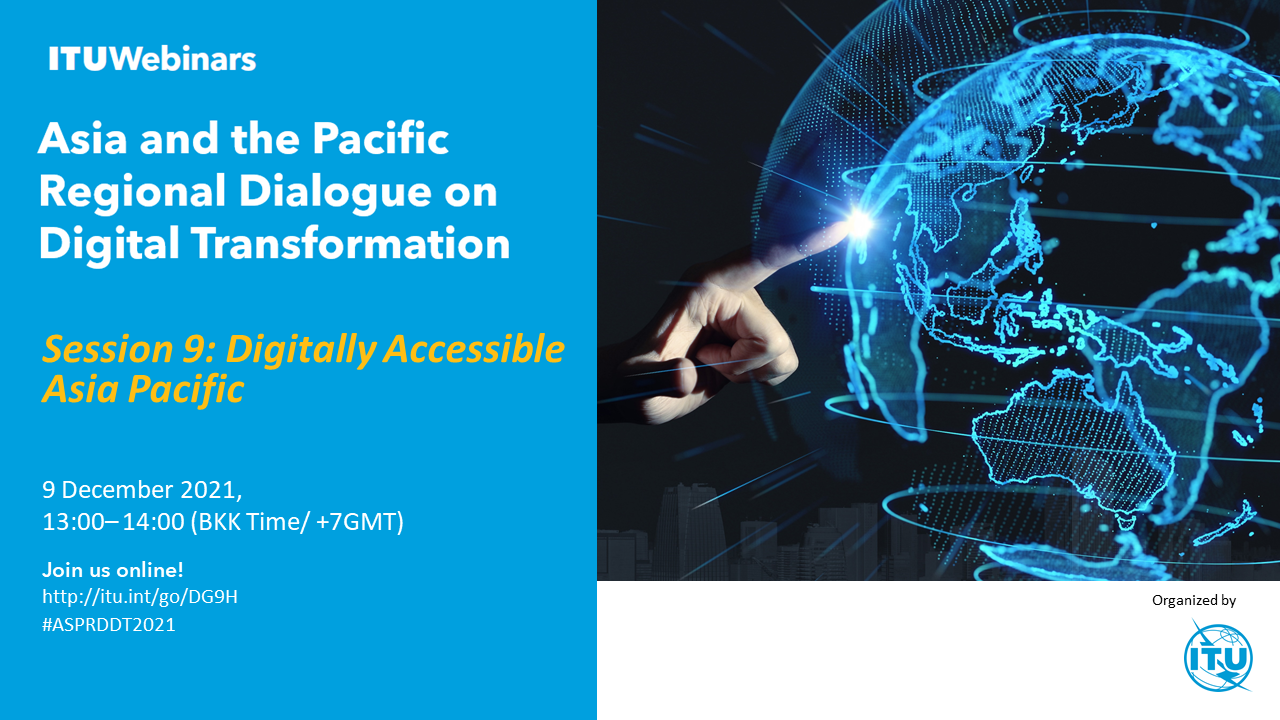
Introduction & Background
The COVID-19 pandemic has placed the world in an unprecedented situation, with billions of people worldwide being forced to rely on the digital ecosystem as the main means of accessing vital information and services.
ICT must be designed and made accessible if people are to have equal and equitable access to public information and services. To enable this, governments must incorporate ICT accessibility considerations into their laws, policies, regulations, strategies and standards. If ICTs Accessibility is not take into consideration as part of digital transformation, some people will be left out, especially persons with disabilities (PWDs).
Active measuring and evaluation of our response and actions and collecting disability-disaggregated data can enable policy-makers to take better decisions and promote an effective socio-economic response to the pandemic. This includes both mainstream and specific policy-making that benefits persons with disabilities on an equal basis with others and empowers them in all aspects of life.
The success of ICT accessibility implementation policies can be pursued through legislative means to maximize the use of ICTs by persons with disabilities to fully access employment opportunities, improving the access of PWDs to employment and job-finding services, vocational and digital skill training and rehabilitation, and to innovative practices such as telework and self-employment.
In order to support and enable PWDs to participate in the digital economy and society, this session aims to explore best practices of ICT Accessibility Strategy and Policies, the importance of collecting disability-disagregated data supporting and the development of ICTs and digital skills to support PWDs.
This session will also introduce the "Towards building inclusive digital communities": ITU toolkit and self-assessment for ICT accessibility implementation, which was launched this year, to enable countries and organizations to run a self-assessment and obtain an immediate overview on the level of their ICT accessibility implementation to support the development of appropriate policies, strategies and to replicate good practices, support evaluation and to monitor the advance in ICT/digital accessibility implementation.
Objective
- To introduce to ITU assessment of ICT accessibility in the Asia-Pacific region report and "Towards building inclusive digital communities.
- To raise awareness on ICT Accessibility, including best practices on ICT Accessibility Strategy and Policies, as a key enabler for digital inclusion for PWDs.
- To raise awareness of best practices on collecting disability-disagregated data to enable and support policy-makers and regulators to develop effective measures for COVID-19 response for PWDs.
- To promote and share best practices and initiatives on supporting the digital skills of PWDs in Asia and the Pacific